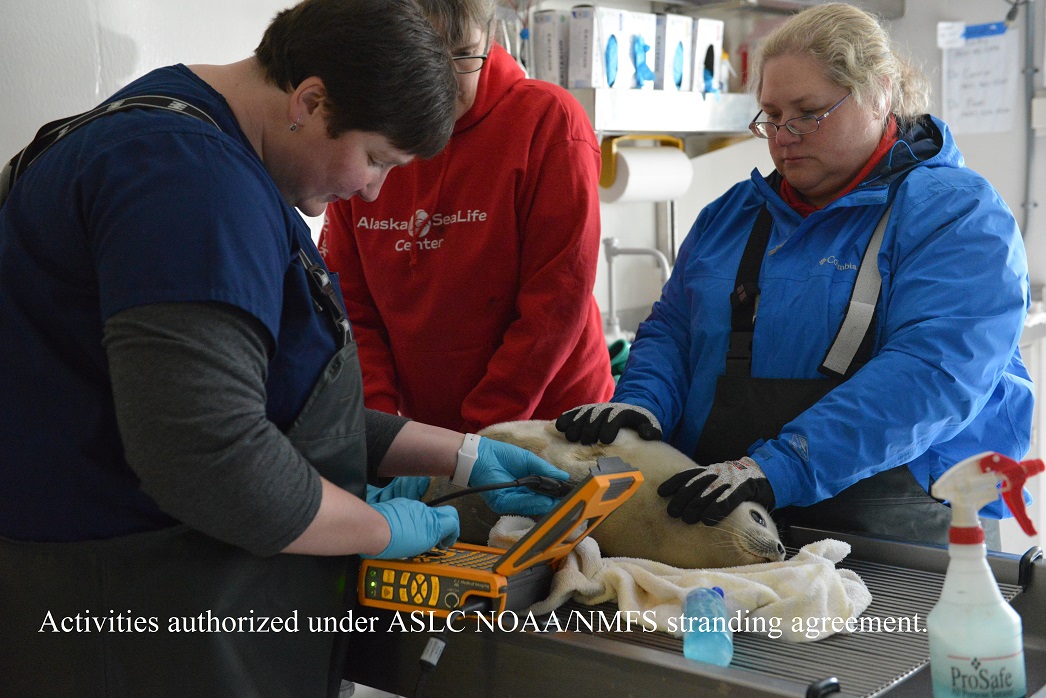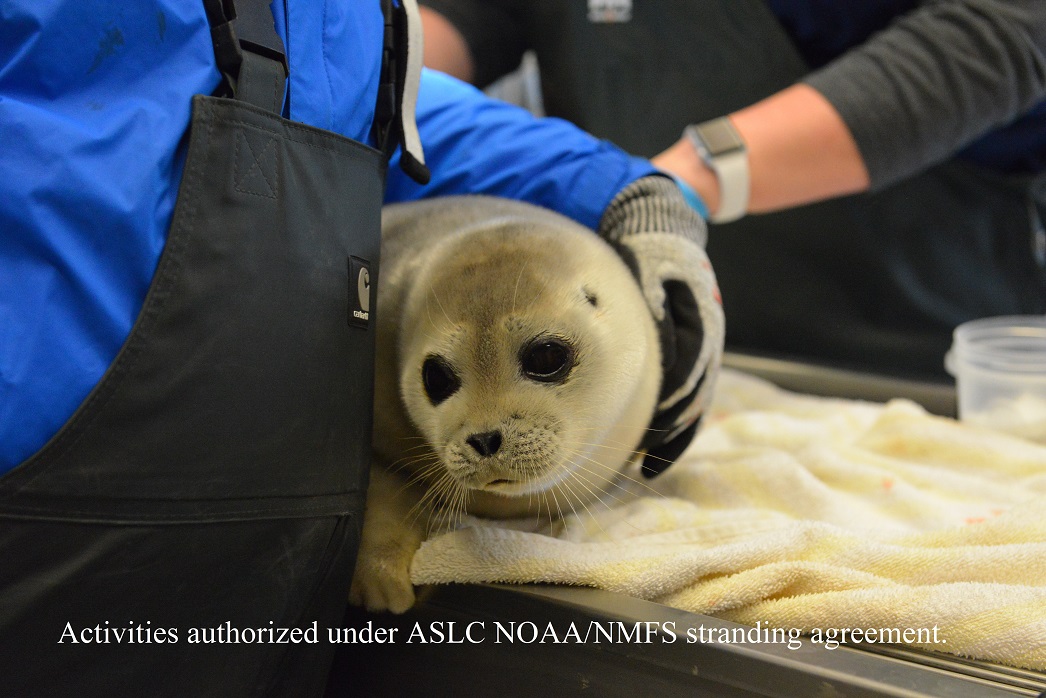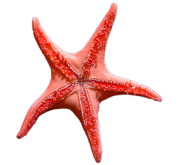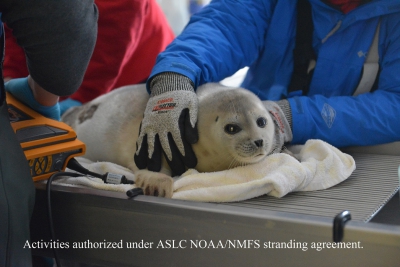Alaska SeaLife Center Admits First Stranded Seal of 2017 March 29, 2017
Seward, AK – March 29, 2017– The Alaska SeaLife Center (ASLC) has admitted its first stranded marine mammal of 2017, a yearling ringed seal from Dutch Harbor. Following on the heels of a record breaking year in 2016 for the Center’s wildlife response team, ASLC President and CEO, Tara Riemer says wildlife response is shifting from a primarily summer activity to a steady year-round concern.
“Over the past two years we have experienced a significant increase in total calls to our wildlife response hotline and in cases requiring action from our team. Based on what we have seen thus far in 2017, we expect this increased activity level to continue,” said Riemer. “The other trend we are seeing is that wildlife response is no longer primarily a summer activity. This has required a significant increase in staffing and allocation of our resources to ensure the high level of response and veterinary care to which the Alaska SeaLife Center is committed.”
The recently admitted ringed seal first came to the attention of responders on February 26 following a call from a concerned citizen in Dutch Harbor. Community responders continued to observe the animal for several days at differing locations during which no physical abnormalities or injuries were observed. However, the ringed seal was approximately 250 miles out of its normal range, increasingly lethargic and appearing to avoid the water. With authorization for the rescue from the National Oceanic and Atmospheric Administration (NOAA) and the Alaska SeaLife Center, the seal was transported to Anchorage courtesy of PenAir where it was met by ASLC’s wildlife responders.
When the ringed seal arrived at the Alaska SeaLife Center on March 3, she weighed 13.2 kilograms (29 pounds). Upon admission the seal’s coat was in good condition but she was underweight and severely dehydrated. The seal quickly transitioned to eating fish on her own. Further examination revealed that the seal was not maintaining body temperature and was severely parasitized. She is currently in “good but guarded” condition.
The Alaska SeaLife Center, a 501(c)(3) not-for-profit organization, is the only permitted marine mammal rehabilitation center in Alaska, responding with authorization from NOAA and the USFWS to wildlife across the state such as seals, walrus and sea otters. Staff at the Center work with community partners to assess animals and when appropriate transport them to the Center for care. For most seals admitted to the Center, treatment and rehabilitation is a three month process.
NOAA has determined that ringed seals rehabilitated outside of their usual range are not releasable; therefore, the seal will be cared for at ASLC until a long-term placement facility is identified.


*Veterinarians at the Alaska SeaLife Center give a comprehensive health exam to a stranded ringed seal that was admitted on March 3, 2017 through the Center’s wildlife response program. The Center says it is seeing a significant increase in total annual cases as well as a shift from a primarily summer activity to a steady year-round concern. (Photo: ASLC)
“With these trends it is increasingly important for the Alaska SeaLife Center to maintain ongoing dialogue with coastal communities to keep each other informed regarding potential issues that may be impacting wildlife,” said Riemer. “Alaskans everywhere have a strong bond with marine wildlife from traditional culture and subsistence to tourism and local pride.”
Over 80% of the funding for the ASLC’s wildlife response program comes from charitable donations. “We especially thank individual Alaskans all across the state, our visitors, and corporate partners at BP Alaska, ConocoPhillips Alaska, GCI and PetZoo for their generous contributions to the Center in support of wildlife rescue,” said Riemer.
The Alaska SeaLife Center operates a 24-hour hotline for the public to report stranded marine mammals or birds,and encourages people whohave found a stranded or sick marine animal to avoid touching or approaching the animal. Call first! 1-888-774-SEAL.
High resolution photos available from media@alaskasealife.org; 907-422-7075.
About the Alaska SeaLife Center: Opened in 1998, the Alaska SeaLife Center is a private, non-profit 501(c)(3) research institution and public aquarium. It generates and shares scientific knowledge to promote understanding and stewardship of Alaska’s marine ecosystems. The ASLC is an accredited member of the Association of Zoos and Aquariums. To learn more, visit www.alaskasealife.org.


